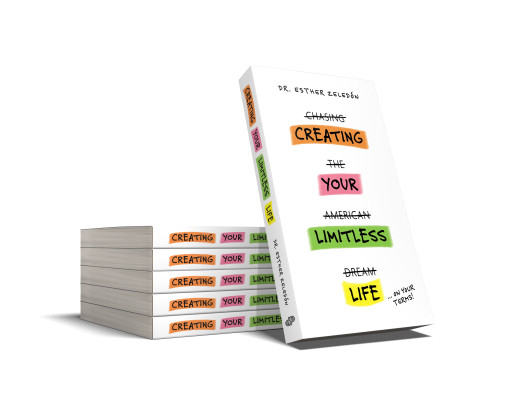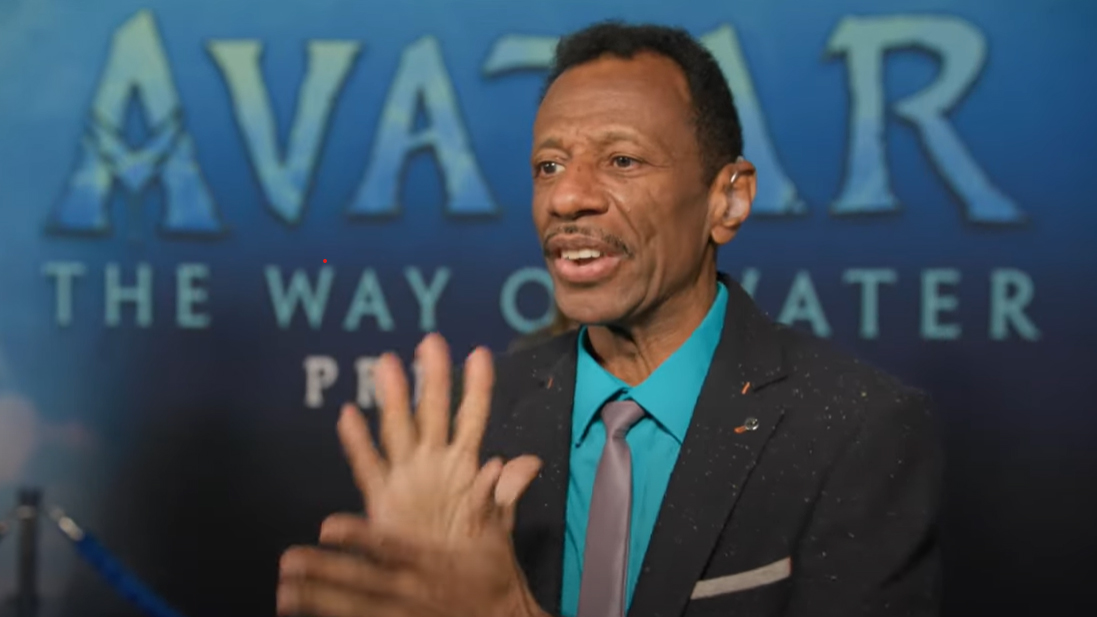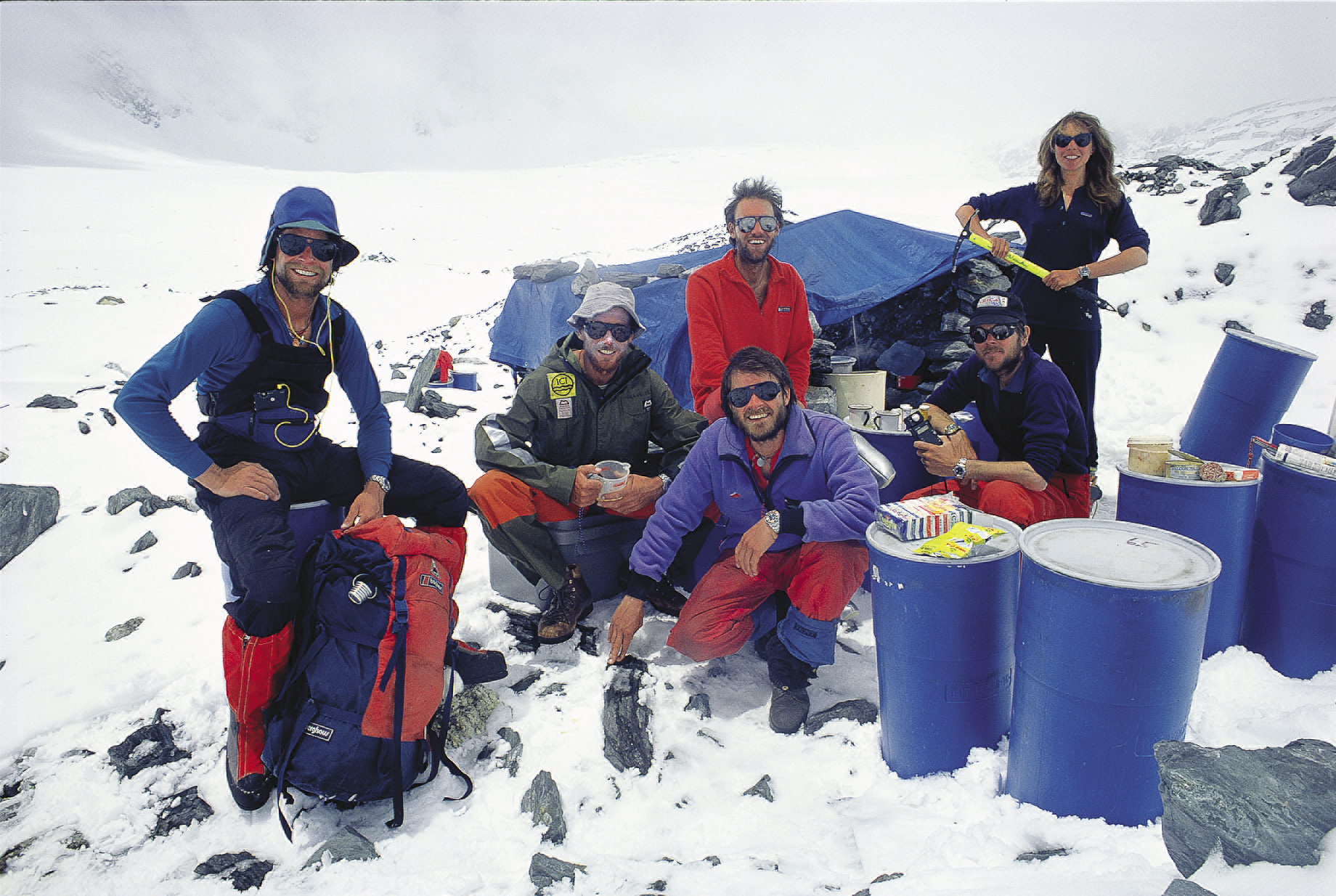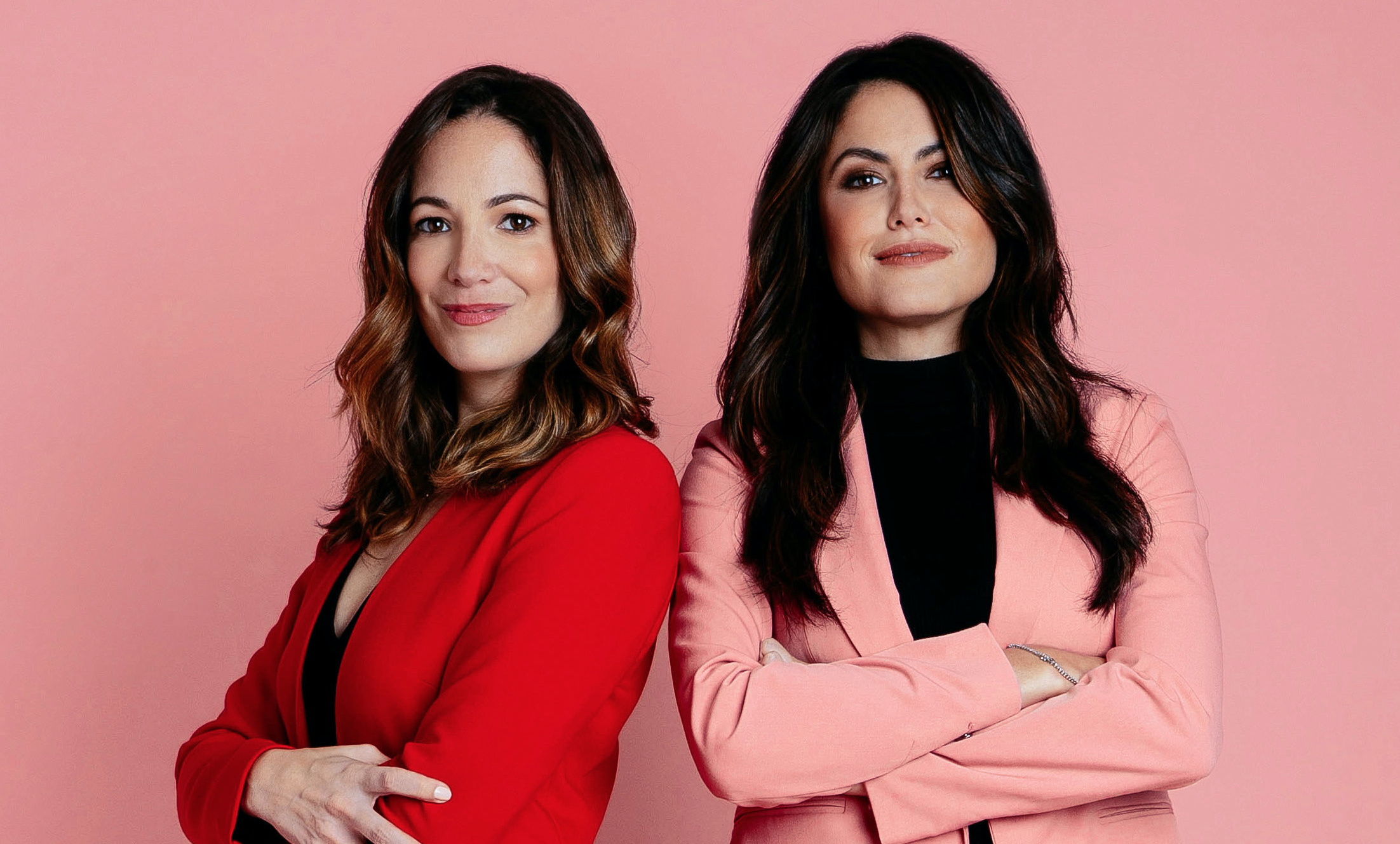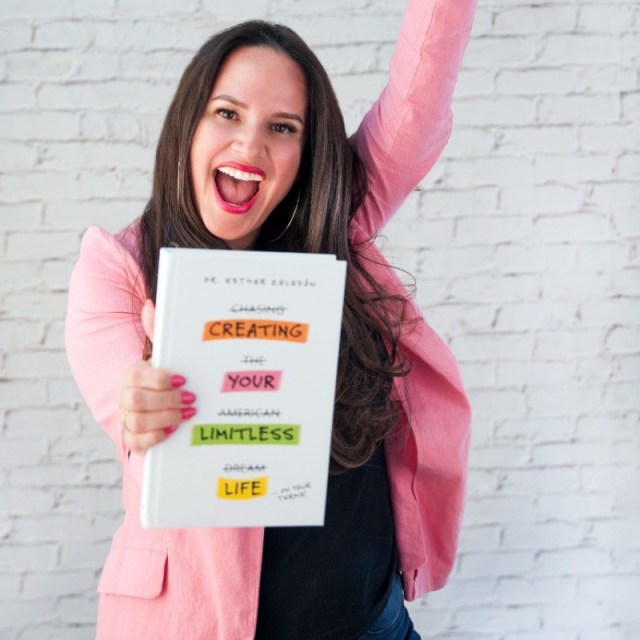
As the world begins to prepare for 2024, it’s natural to start thinking about goals we want to achieve. New year, new intentions, right?! If you are focusing on what your purpose is for next year, you’ll definitely want to keep reading, because perhaps we need a mindset reframe when it comes to setting goals for success.
A woman and thought leader who understands this deeply on a cellular level is high achievers’ coach, scientist and international diplomat, Dr. Esther Zeledón – popularly known as Dr. EZ to those she works with. This year, she released a new book called ‘Creating Your Limitless Life’ – a timeless resource and step-by-step guide created to help immigrants and first gen high achievers discover and live their purpose.
Dr. EZ’s story begins with her parents winning the lottery to save her life as a baby followed by their escape from civil war in Nicaragua, leaving them with nothing. Growing up, she saw her parents juggle multiple jobs while she sought solace and opportunity in education. Despite being a top student and later achieving corporate success, she struggled internally, leading to a suicide attempt at the age of 16 and a constant battle with feeling like a burden. It wasn’t until she gave herself permission to pursue her own dreams and focus on her purpose that she truly found fulfillment and brought peace to herself and those who love her.
What we love about the book cover is the way it immediately helps us reframe the way we view and uphold what “success” means. The words “Chasing the American Dream” are crossed out, replaced with a phrase that opens up our minds to the possibilities beyond the expectations and pressures around us.
Esther covers the following topics in ‘Creating Your Limitless Life’:
- Helping immigrants and first gen Americans redefine what success means;
- How to build the ultimate legacy through purpose;
- Ways to break free from overthinking;
- Overcoming negative voices; and
- The importance of surrounding yourself with champions.
After hearing about her background and what she does today, we wanted to lean all the way in to learn how we too can find our purpose in an authentic way.
Can you first tell me where you grew up and what your family went through when you were a baby?
I was born in Managua, Nicaragua. When I was a toddler, I got really sick. My body turned yellow and I was being poisoned by my own urine. My urethra was too small and I was given three weeks to live. My parents, desperate to help me, took me to all the best doctors and even traveled to Costa Rica, but no one could help me. There was one doctor and center in Miami that could help, but without U.S. health insurance, it would cost thousands and thousands of dollars plus would require long-term travel and stay. Although non-religious, my father is a spiritual man and decided one day to buy a lotto ticket. He believed I was filled with luck.
My mom was hesitant but my aunt was willing to go 50/50 with him. Back then lotto tickets were sold like fair tickets and the same number was sold on multiple tickets. Story goes that he had me point to the numbers. To everyone’s surprise, they won the lotto! Immediately upon winning, my mom and I left for Miami where I got the life saving surgery I needed, and we spent several months there. However, all the money was spent on me. We eventually returned back to Nicaragua, but the political situation was getting worse and worse, and once my dad began to receive threats, my family decided to flee.
As immigrants and people who had to flee a civil war, what was life like for you growing up in America, and what were some of the pivotal events you witnessed in your parents’ lives?
Life in the United States was very difficult. Without a network of people to help them, mom and dad’s education and experience didn’t help them much, and they worked any jobs they could. Mom wrapped gifts at Macy’s, and dad did lots of odd jobs while attending graduate school. Eventually, we settled in, we had a nice place in a decent suburb, and I had a great best friend. I know that finances were always tight, but at least for me, things were great for a while. Then, things changed.
My mom got pregnant with my younger brother right when my dad’s graduate school stipend ran out. The family ran out of money, and mom was left without health insurance during a high risk pregnancy that required her to see several specialists. They made the difficult choice of dad leaving school and returning to Nicaragua where he had a job offer, and the rest of us moved to Miami to be closer to family. That move was brutal.
My sister was in 11th grade, and I was in 4th grade, and we moved midway through the school year. Initially, we moved in with family, and I remember being so horrifically cramped and wishing we were back in our old house. Eventually, mom found a small place for us and signed up for government health insurance. We learned what it was like to receive only the most basic medical care as mom almost died giving birth to my brother. Complicating everything, we moved to Miami just before the arrival of Hurricane Andrew, a massive Category 5 storm.
I witnessed firsthand the sacrifices my family made just to have an ounce of the American Dream. I didn’t see my dad for a few years as he worked to send us money. Mom worked two jobs, and especially during the week, I rarely saw her. In those years, I spent my time with my grandma and helped raise my younger brother. For my sister and me, that move was our first lesson in resilience. Those were our dark years, but they also gave us the strength to overcome the struggles to come.
Education and achievement became a solace for you, and many immigrant children and kids of immigrant parents can certainly relate to this. Can you explain why this became such a big focus for you?
Following the move to Miami, all I saw was struggle, anxiety, and stress. Struggle over money, anxiety over the future, and stress to fit in. For me, I wanted out, I wanted to bring smiles to my parents, and most of all, I didn’t want to be a burden. I came to love the library, largely because checking out books was free, and I read autobiographies and stories of great trailblazers. I studied their formula – the common denominator was education and achievement. This is what I understood as my ticket out to something better.
It was also the message I heard at home: “Yo me sacrifiqué y llegué a este país para que aprovechen de las oportunidades.” (“I made sacrifices and came to this country so you could take advantage of the opportunities.”) As a survivor of civil war, my dad would tell us that countries may crumble and things can explode, but the thing that no one can take away from you is your education. So, for many years, education and achievement became my singular focus. I had to make it.
During your teen years you struggled with the pressure of expectations from achievement, which led to you attempting to take your own life. How did this experience change your focus in life going forward?
It’s so interesting to look back on that time with the wisdom of therapy and coaching, but at that time, I didn’t fully understand what was happening. The thing is, I associated achievement with perfectionism. I was praised for being the perfect child and not being a burden. I lived with the constant knowledge that my family had used all their money to save my life, and it was so important to me to be the “good” kid that never caused my family to worry.
Then, my high school boyfriend broke up with me, and everything unraveled for me. Having a partner on my journey was part of the “success” formula as I understood it, and I felt that I had failed. But even worse, in my deep sadness, my family became extremely worried about me, and I had become a burden to everyone. It was my greatest nightmare, and it was just too much for me to handle. I hated that they worried about me. More than the breakup itself, the feeling that I was a disappointment and a burden is what led me to attempt to take my own life.
When I survived, the doctor whom I will never forget pulled me aside and had a great talk with me, reminding me that I had so many good things to look forward to. It may seem like a small gesture, but it’s hard to explain how much I needed someone to say that to me. From then on, I decided to focus on the things that gave me joy, volunteering more actively in my community and focusing on my future. The big pivot in my focus was realizing that I couldn’t control everything: The things that happen in life are just events, and failure does not define me.
I’ve carried this lesson throughout my life, and it taught me that I have the capacity to overcome, learn, and bounce back. On a practical level, this whole experience taught me about the tools I use in a crisis, and I started to integrate those preventatively as part of my everyday life, helping me ensure that I never hit that kind of rock bottom again.
Today, you are the author of a book called ‘Creating Your Limitless Life’, as well as an international diplomat, scientist and a life coach. What are some of the major lessons you share with readers in your book?
The book is quite different from what I envisioned when I first started writing it. Really, I wrote the booking thinking of my younger self and what I needed in my darkest times: a formula for discovering your purpose, learning to live it, and sticking with it when life gets tough. I hadn’t really planned on sharing my whole story, and to be honest, like many people, I didn’t think I had much of a story to share, and I was afraid to be vulnerable. But I came to understand that sharing my story and my lessons is what makes it authentic.
So I shared all my ups and downs, things I had never shared before with anybody, such as attempting to take my own life and being treated horrifically when I gave birth to my daughter, things that people read for the first time through my book. I share my childhood, my relationships, the hardships I experienced in school and in my career climbing the ladder. As a high achiever, many people only see all the accolades, awards, and accomplishments, but they don’t see how much suffering we do in silence. High achievers are the ones that people rely on, the ones who get it done, no matter what, and the hardest thing for a high achiever is to be vulnerable in public.
I want to change that narrative and show that vulnerability is strength and authenticity is freedom. The major lessons I share are that 1) There is no Prince Charming. No one is going to save you – you have to create the opportunities yourself. 2) You have to believe that you deserve success on your own terms and that it’s possible, and then visualize your path to reach it. 3) Being a trailblazer means that you are the first, so the naysayers may be loud and may outnumber your champions. Know that their words of criticism and opposition are a projection of their own limitations and the messages they’ve received their whole lives. Treat them with empathy, don’t internalize their words, and keep on trailblazing.
How do you guide or encourage immigrant families to redefine what success means and looks like, without the pressure?
We’ve learned in our work and travels that the concept of the American Dream applies all over the world. Everywhere you go, people seek a place where opportunity and success are available to anyone, as long as you are willing to work hard. That’s the fundamental concept of the American Dream, and it’s why millions of immigrants all around the world uproot their lives in search of something better.
Unfortunately, in practice, the American Dream has become something very different, defined by universal checkmarks that are assumed to be what everyone wants and should achieve according to a defined timeline. And immigrant communities buy into these practices wholeheartedly. Married by a certain age, a certain type of job, and little change after midlife. It doesn’t take into account the uniqueness within each of us or the value we each bring to our families, communities, and work spaces.
It’s no surprise, then, that immigrant communities everywhere continue to struggle, and emotional and mental health crises go largely ignored. Our work focuses on broadening possibilities, showing immigrants and people of color like us that we deserve more, that it’s within our reach, and that living authentically is our path to real freedom and success. We redefine success to be based on our own dreams and tied to our individual purpose and value-add. We work with immigrants and first gen populations to align their actions to bring out their creativity and their unique ‘how’ every single day.
It’s a shift in perception that changes how we function in our day to day. It lights us up in all of the spaces where we function. Life becomes less about chasing externally defined checkmarks, focusing instead on finding alignment and success that matches our authentic selves. And as hard to admit as it can be for the stoic, high achieving children of immigrants, when we are aligned we are less drained, more present, clear on what we want, able to go after it, and more fulfilled. We also know that our work is more than just coaching and, really, represents the beginning of cultural shift. And this means changing the conversations we have at home.
At the dinner table and around the holidays, put a halt to comparisons and asking about checkmarks – “When are you getting married? Why aren’t you a lawyer/doctor/etc. like your cousin?” Focus instead on asking your family about their dreams, what moves them, and how you can support them. Remove the pressure and expectation to be on a path like everyone else, and open instead space for acceptance for all of our unique purposes and values.
You talk about how to break free from overthinking and overcoming negative voices in the book also. How did you navigate these issues in your own life?
One of the simplest yet most powerful ‘aha’ moments comes when people understand that they are likely to keep overcoming the same struggles they have overcome in the past. Depression, anxiety, procrastination, people-pleasing, self-doubt – whatever your poison – will keep trying to hold you back. In my book and workbook, I provide an exercise where I ask the reader to list everything they struggle with and specify how they have worked past it. Those are your resilience techniques. Rather than using them only when you hit rock bottom, we need to incorporate them into our daily lives.
For me, overthinking and negative voices are a constant struggle, so building a positive mindset is a daily practice for me. Questioning my impact, fear of failure, and non-stop worst case scenario planning are my default, so every day, I wake up and read my testimonials first thing in the morning. This sets my day on a positive note. I feel re-energized and remind myself that my work makes a difference. It also minimizes my feelings of failure because I am reminded of the transformative impact I’ve already had.
Midday, I revisit my calendar for the upcoming week and month, ensuring that I am being strategic and I know what’s coming. This helps with my worst case scenario thoughts. Before bed, the last thing I do is to fill in my celebration calendar. We always wait until reaching a big milestone to celebrate, but I celebrate every step along the way. When I wrote my book, I celebrated finding a title, selecting the type of paper and font, and adding my story. Celebrating throughout helps build a positive mindset to tackle the negative voices in my own head and help me go straight to sleep.
At GTHQ we talk a lot about the power and importance of mentors and support systems. Can you tell us your perspective on why we need to surround ourselves with people who will champion us?
In my book, I emphasize the importance of community. Greatness isn’t accomplished alone, and especially as immigrants and people of color, our linkages to community and family matter tremendously to us. But the irony is that, often, our families and communities are among the strongest negative voices when we seek our purpose and our own path. Finding supporters, mentors, and champions can thus be a challenge that requires us to network and go outside our normal circles, something that we are not really taught to do. So as we guide people to discover and live their purpose, an important piece is encouraging them to seek out those circles that match their dreams and values.
Very importantly, we also make a clear distinction between supporters and champions. Supporters are your broad community, the ones who ‘like’ your instagram posts, who buy your book, and tell you how cool your new adventures are. Supporters are great because they help you combat the negative voices and help reassure you that what you’re doing is making a difference. But your champions are the next level — they’re the ones that were there at the birth of your ideas, the ones you shared your dreams with, and all along the way told you that you’re incredible. This group is much smaller, maybe only a few people, but they are absolutely essential.
Your aspirations need the breath of inspiration to make them feel achievable, and your true champions help provide the confidence and perspective that you’re not just dreaming, that you deserve the success you dream of, and that your dreams matter. Surrounding yourself with supporters and champions is absolutely essential. As high achievers, we already hear the voices of self-doubt ringing in our ears, and the negative voices that often surround us just place additional barriers. We have to make a concerted effort to build our own support systems and find those that will uplift us and believe in us, even when we doubt ourselves. This is our true community.
How do you define purpose today in your own life?
My purpose is centered on helping and inspiring others to identify and live their own purpose, enabling them to become trailblazers. For me, this isn’t just a lofty goal but a practical, everyday commitment.
I strive daily to bring my unique skills and insights to the world, whether I’m interacting with friends, students, podcast hosts, NGOs, my own children, or family members. When people seek my guidance, my goal is to help them unlock their true potential by showing them that purpose isn’t something reserved for special occasions or defined by external validation like titles or significant life events. Instead, it’s about recognizing that everyone has the ability to make a meaningful impact in their lives, each day advancing toward their greater legacies.
For me, living my purpose is a daily practice. It’s how I want to be recognized and sought out in the world. It’s about consistently adding value and making a difference, day in and day out. This approach to purpose is not static but dynamic, evolving with each interaction and experience, continuously shaping my contribution to the world.
As we head into the new year and people start thinking about new goals and ambitions, how would you advise us to reframe our thinking for what it means to have purpose, and build our legacy on our own terms?
This may sound controversial, but I am not a fan of New Year’s resolutions. In a world full of checkmarks, resolutions become just one more thing for high achievers to achieve and stress about. And the fact that the vast majority of people give up on their resolutions by March is a testament to their ineffectiveness. Don’t get me wrong: the habit changes behind resolutions are excellent — losing weight, eating healthier, reading more books — but without a deeper understanding of their linkage to your ‘why,’ your values, and your legacy, they are doomed to fail.
A more effective approach is to set your new year’s intentions based on a word or phrase that encapsulates your aspirations. This method is more likely to lead to success because it is anchored in something larger and more meaningful. For instance, if you choose words like ‘systems’ and ‘authenticity’, as I did last year, every goal and ambition you set for yourself should align with these guiding principles. Your word or phrase becomes the ever-present litmus test for each step you take. Is this choice building my systems? Is this step aligned with my authenticity?
But as we enter the new year, it’s worth remembering that your word or phrase should be rooted in your purpose and advance you along the path toward achieving your legacy. Purpose refers to the actions and attitudes with which we choose to approach life, and legacy represents the lasting impression we want to leave behind. They’re powerful guiding concepts, but we’re rarely taught how to find our purpose or live our legacy.
In my book and accompanying workbook, I encourage readers to begin by writing their own obituary as it would be read if they passed away today. Then, I ask them to rewrite it to reflect how they would ideally want to be remembered. It’s a powerful exercise for clarifying your purpose and shaping the legacy you want to create. It’s especially impactful if done before the year ends, setting a strong foundation for the year ahead.
If you could go back in time and give yourself some advice at your darkest moments, what would you tell younger Esther?
I would tell her she’s limitless and she’s strong. She can have everything she wants and more. She just has to believe it’s true, that she deserves it, and go after it.
You can buy a copy of ‘Create Your Limitless Life’ HERE, and follow Dr. Esther Zeledón on Instagram.
